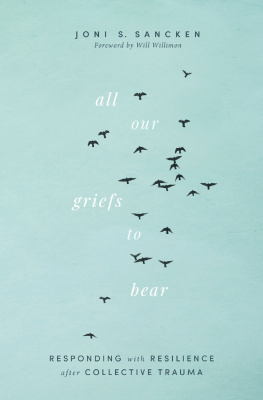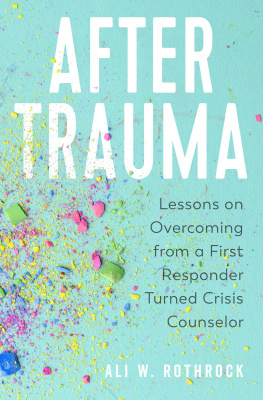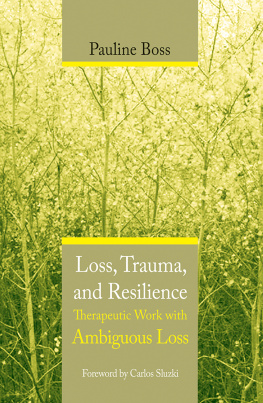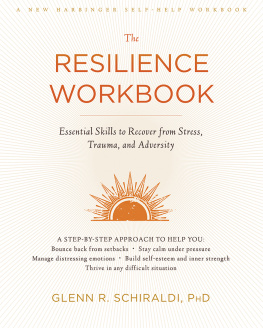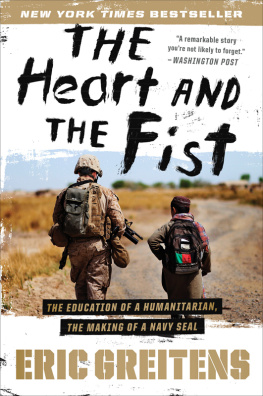Resilience
How Your Inner Strength Can Set You Free From The Past
Boris Cyrulnik
TRANSLATED BY
DAVID MACEY
PENGUIN BOOKS
PENGUIN BOOKS
Published by the Penguin Group
Penguin Books Ltd, 80 Strand, London WC2R 0RL , England
Penguin Group (USA) Inc., 375 Hudson Street, New York, New York 10014, USA
Penguin Group (Canada), 90 Eglinton Avenue East, Suite 700, Toronto, Ontario, Canada M4P 2Y3
(a division of Pearson Penguin Canada Inc.)
Penguin Ireland, 25 St Stephens Green, Dublin 2, Ireland (a division of Penguin Books Ltd)
Penguin Group (Australia), 250 Camberwell Road, Camberwell, Victoria 3124, Australia
(a division of Pearson Australia Group Pty Ltd)
Penguin Books India Pvt Ltd, 11 Community Centre, Panchsheel Park, New Delhi 110 017, India
Penguin Group (NZ), 67 Apollo Drive, Rosedale, North Shore 0632, New Zealand
(a division of Pearson New Zealand Ltd)
Penguin Books (South Africa) (Pty) Ltd, 24 Sturdee Avenue, Rosebank, Johannesburg 2196, South Africa
Penguin Books Ltd, Registered Offices: 80 Strand, London WC2R 0RL , England
www.penguin.com
This translation first published by Penguin Books 2009
First published 2009
Copyright Boris Cyrulnik, 2009
Translators copyright David Macey, 2009
All rights reserved
The moral right of the author and translator has been asserted
This book is supported by the French Ministry of Foreign Affairs, as part of the Burgess programme run by the Cultural Department of the French Embassy in London.
Except in the United States of America, this book is sold subject to the condition that it shall not, by way of trade or otherwise, be lent, resold, hired out, or otherwise circulated without the publishers prior consent in any form of binding or cover other than that in which it is published and without a similar condition including this condition being imposed on the subsequent purchaser
ISBN: 978-0-14-193286-6
PENGUIN BOOKS
RESILIENCE
Boris Cyrulnik is an internationally renowned psychologist and leading proponent of the theory of resilience: that we are much more capable of overcoming traumatic events in our lives than we imagine. Working with genocide victims in Rwanda and child soldiers in Colombia, he travels around the world helping individuals and countries come to terms with their pasts to create positive new outlooks. He is the author of numerous books on resilience (including Talking of Love, also published by Penguin) and its possibilities in childhood and throughout life. An international bestseller, his work has been credited with helping France heal the wounds left by the Second World War. Cyrulnik was born in 1937; in 1942 his parents were deported to a concentration camp and never returned. Maltreated by his foster parents, he was eventually chosen as a runner in the liberation, perilously crossing enemy lines to deliver messages to French fighters. He was seven. This personal trauma helped him develop his belief that trauma is not destiny.
I
Introduction:
Resilience as a natural process
Misfortunes are never wonderful. But when an ordeal does come, do we have to succumb to it? And if we fight it, what weapons do we have?
We are astonished when we meet children who triumph over their misfortunes
There is nothing new about this amazement. We have always been astonished by children who succeed in surviving terrible ordeals and making something of themselves even against all the odds. Yet the classic way in which the statement is made shows that it has been interpreted even before it has been studied. We are astonished because they have triumphed over an immense misfortune. The implication wonderful is already associated with misfortune. Yet if triumph can be observed, the misfortune must have been overcome, and the wounded child must have had time to write a few chapters of his history by looking back at his past in order to explain to himself how he survived.
It is not until much later, not until we have reached the age of reason, that we can relate the meaning of triumph to a chaotic childhood. And yet, at the very moment the misfortune occurs, the demoralized childs feelings are confused: he has been hurt, but he is still hopeful. As soon as he is hurt, the child begins to dream of a better future: Ill get over it in time Ill get my own back one day Ill show them. And because the pleasure of the dream becomes linked with the painful reality, he is able to withstand it. It is even possible that the torment heightens the need to imagine a future: Muddy paths often make the spiritual dawn more desirable and the need for an ideal more persistent.
There is no such thing as pure unhappiness, or pure happiness. But as soon as we put sadness into a story, we give a meaning to our sufferings and understand, long after the event, how we succeeded in turning our unhappiness into something wonderful. Anyone who has been hurt has to undergo a metamorphosis. I learned to turn unhappiness into a test. One makes you bow your head, but the other makes you hold your head up high, explains Catherine Enjolet, who was born in 1954 and brought up in care. In 1990, she founded the charity Parrains par mille (Godparents by the Thousand), which encourages the volunteer monitoring of deprived children in the community.
Two words govern the way we observe and understand the mystery of those who have survived and who, as adults, can look back at the scars left by their past. The words that teach us how to look are resilience and, less obviously, oxymoron.
When the word resilience was first used in physics it referred to a bodys ability to absorb an impact. But for our purposes this attaches too much importance to the bodys substance. When it began to be used in the social sciences, it came to mean The ability to succeed, to live and to develop in a positive and socially acceptable way, despite the stress or adversity that would normally involve the real possibility of a negative outcome.
How do we become human despite the blows of fate? We have been asking that question ever since we began to try to discover the lost continent of childhood. The nice little Rmi raises the problem in very clear terms in Henri Malots novel Sans Famille (1878): I am a foundling. But I believed that, like all the other children, I did have a mother. Two volumes later, having lived on the streets and been exploited at work, beaten, robbed and ill, Rmi wins his right to lead a socially acceptable life in London and ends his story with a Neapolitan song that evokes soft words and the right to love. The rules of the genre are precisely the same as in Charles Dickens, who drew on the wretched childhood in which he was exploited to develop his themes of suffering and victory over suffering. I saw no reason why the dregs of life should not serve the purpose of a mortal, as well as its froth and cream It involved the best and worst shades of our nature; much of its ugliest hues and something of its most beautiful. Maxim Gorkys account of his childhood traces the same archetypal journey from the desolation of Act I (Childhood, 191314), to the reparation of Act II (In the World, 191516) and the triumph of Act III (My Universities, 1923). All these popular novels illustrate the same idea: our sufferings are not in vain, and victory is always possible.


